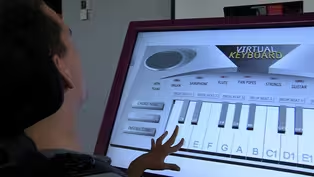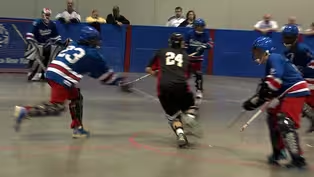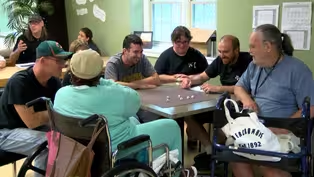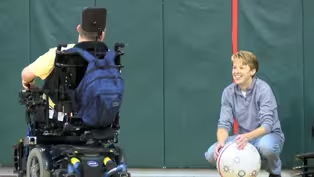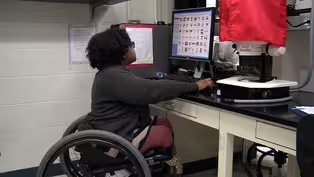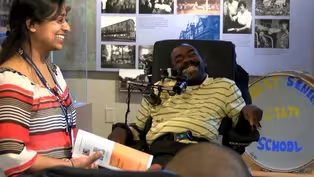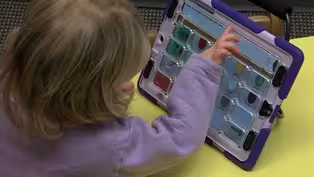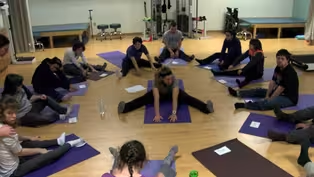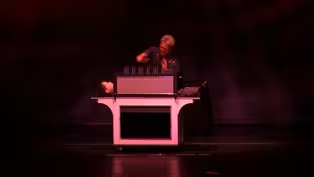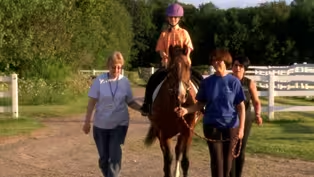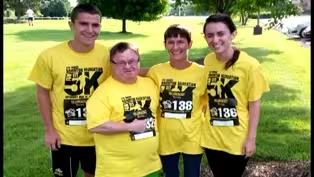Move To Include
Multiple Sclerosis
Special | 3m 11sVideo has Closed Captions
Kerrie Giesen tells us what it is like to have Multiple Sclerosis and how her life has changed.
We sit down with Kerrie Giesen who suffers from MS. She'll tell us what it is like to have Multiple Sclerosis and how her life has changed.
Problems playing video? | Closed Captioning Feedback
Problems playing video? | Closed Captioning Feedback
Move To Include is a local public television program presented by WXXI
Move To Include
Multiple Sclerosis
Special | 3m 11sVideo has Closed Captions
We sit down with Kerrie Giesen who suffers from MS. She'll tell us what it is like to have Multiple Sclerosis and how her life has changed.
Problems playing video? | Closed Captioning Feedback
How to Watch Move To Include
Move To Include is available to stream on pbs.org and the free PBS App, available on iPhone, Apple TV, Android TV, Android smartphones, Amazon Fire TV, Amazon Fire Tablet, Roku, Samsung Smart TV, and Vizio.
More from This Collection
Homework Hotline, designed for grades 4 through 12, provides the tools students need to succeed both in and out of the classroom, & supports academic achievement across a variety of learning standards. This collection is specifically curated by Move to Include & presents in-depth stories & profiles of individuals & organizations who are working to make our community inclusive & accessible for all.
Video has Closed Captions
How touch screen technology is making learning more accessible for all students. (2m 58s)
Video has Closed Captions
See how floor hockey is helping these players both in and out of the rink. (2m 16s)
Video has Closed Captions
A program that specializes in working with individuals suffering from traumatic brain injury. (4m 6s)
Video has Closed Captions
Recreational activities through adaptive sports and inclusive recreation. (5m 27s)
Video has Closed Captions
Genomics and how scientists use computers to analyze data. (2m 55s)
Video has Closed Captions
Many people with disabilities were sent to live in institutions away from their families. (2m 28s)
Video has Closed Captions
Charles uses eye gaze technology and a device called a Dynavox to help him communicate. (2m 21s)
Video has Closed Captions
How speech pathologists help children with communicative disorders. (2m 25s)
Video has Closed Captions
Using magic tricks to help therapists provide better care to people with disabilities. (4m 24s)
Video has Closed Captions
Equine assisted therapy. Learn about the benefits of working with horses. (2m 37s)
Video has Closed Captions
We ask Pat and his family how Down Syndrome has impacted their lives. (2m 40s)
Providing Support for PBS.org
Learn Moreabout PBS online sponsorshipMy name is Kerrie Gieson, and I'm 43 years old.
I've had MS for 16 years and we are here today talking about MS which is multiple sclerosis and its effects on people.
Some of the symptoms of MS can range from cognitive loss of ability to physical loss of ability.
It can be anything from memory loss, speech issues end to physical issues with walking and balance.
Spasticity issues, heat intolerance, cold intolerance.
Those are really the big ones.
Multiple sclerosis affects the lining of the nerves.
And the way I like to explain it is it's like an electrical electrical cord with the outer part of the electrical cord being wrapped in, you know, the rubber part of it.
And in my case, the coating on the nerves is called myelin.
And because MS is an autoimmune disorder, the body attacks the myelin.
And when that happens, the nerve signals that come from the brain to the different parts of the body are confused and slowed down and whatnot, because that nerve signal can't travel as quickly or it gets messed up along the way because the myelin has been degraded.
We do a lot of outside errands.
Since I have hand controls, I can drive anywhere and either use my walker if it's going to be a short walking distance, or I can use my wheelchair that I propel myself.
If it's going to be a longer trip so I can take my kids to the zoo, to the science museum.
Really, We go anywhere that any other family could go around the house.
We're really, you know, the same family that anybody else would be.
We just do it a little bit differently.
So we love to play games.
We love to bake, we garden.
The kids help me garden.
Although that's not one of their favorite activities.
The kids are gourmet chefs because they help with dinner now.
They help with a lot of chores around the house.
Using adaptive equipment really is is key.
And a lot of people fight using adaptive equipment because it may carry a certain stigma or they may feel they look a certain way, they may feel they look disabled.
But once they can accept that and get over it, adaptive equipment really is fundamental to living well with m.s.
Staring at someone can be very hurtful, smiling at the person and saying hello goes a million miles if you're four or if you're, you know, 89 just smiling at someone and acknowledging the person with a disability is the best thing that anybody can do to him.
Oh, yes, that is a big leap.
It's like dandelions and what it's like a dandelion.
And just hit me in the face and.
Support for PBS provided by:
Move To Include is a local public television program presented by WXXI
